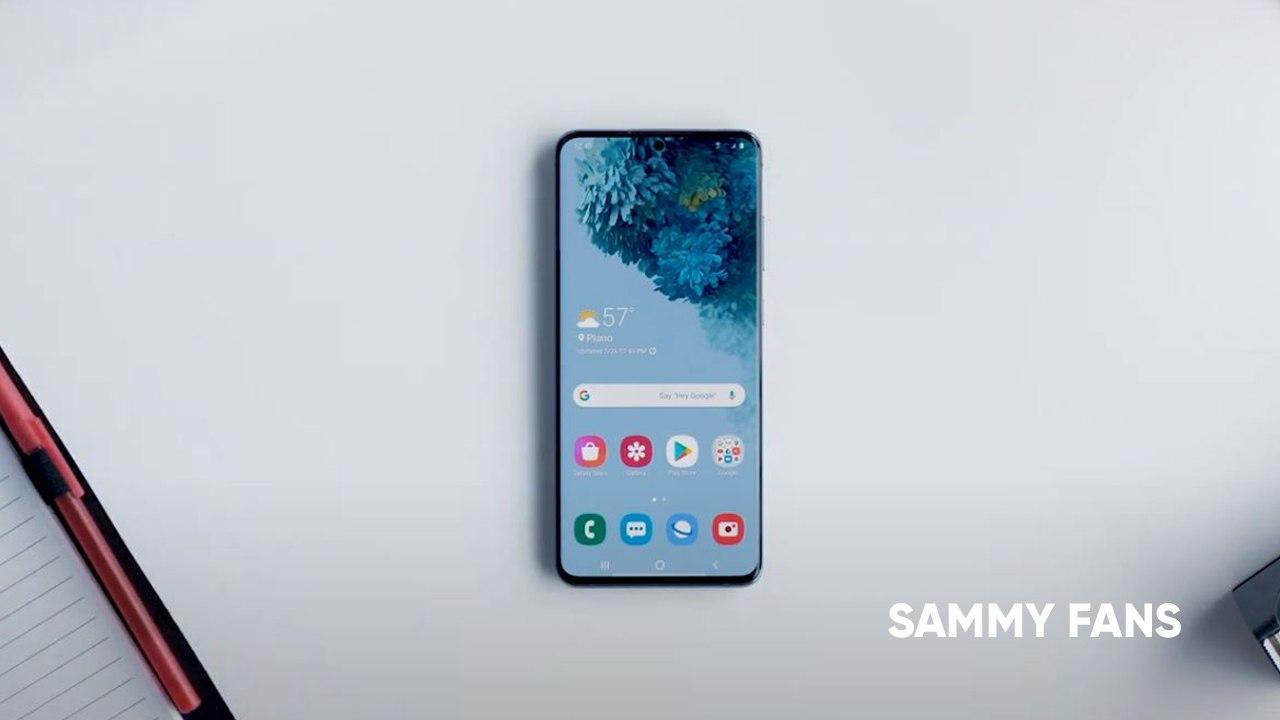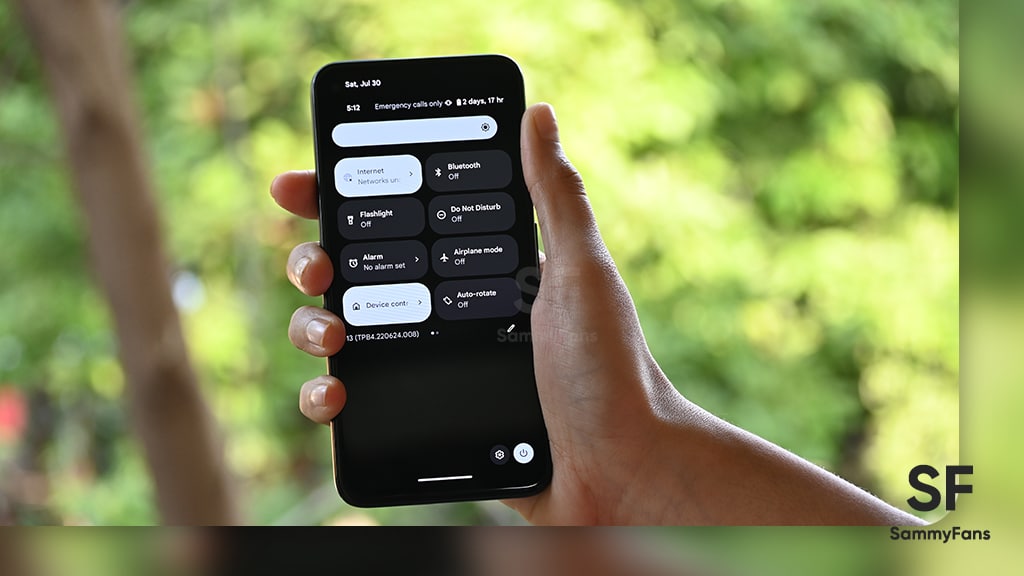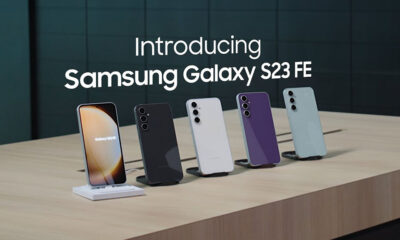Android
Android phones share large amount of data to developers and third parties, study shows

These days, digital privacy is one of the most important discussion points, and it seems we can’t just keep our data safe. Researchers at Trinity College in Dublin, Ireland have made discoveries that should cause many Android users to worry a bit. The published article reveals that, even if you choose to opt-out of all data tracking, some Android phones still share your information.
When users do not want our data to be tracked, users simply go to our settings (both application and application settings) and tap ‘Do Not Share’. While this gives us a sense of security, it does not cover all the basics. The problem is caused by system applications and bloatware.

Join SammyFans on Telegram | Twitter | Facebook
Studies have shown that these methods of tracking are inevitable
When you get a new phone, there are usually pre-installed apps, and you can’t delete some of them. Certainly, some of those applications actually send a consistent stream of data back to OEM. This can go to that free game launcher that came with your phone or your calculator.
Even your basic apps can send data to OEM. The study found that a messenger to other phones will send OEM data back to the OEM time stamps, when sending messages, and how many you send. However, there is no data suggesting that the company can read the messages.
What makes this even more troubling is the fact that you can’t uninstall these apps. They come baked on Android software and share your information from the get-go.
Android Mobile OS Snooping By Samsung, Xiaomi, Huawei, and Realme Smartphones
We do not know much about this yet, but so far, Samsung, Xiaomi, Huawei, Realme are some of the companies that do this. This is really shocking because Samsung and Xiaomi are the biggest manufacturers of Android.
The above-mentioned data transfer takes place on Xiaomi and Huawei phones. Looking at what happened between Huawei and the US government, it is surprising to see this still going on.

Android smartphones also share your information with software developers
The OEMs are not the only ones who are fed up with data. The investigation has also found that Android phones also share your information with software developers through pre-installed apps. These include Facebook, Microsoft, Linkedin, Heytap, and Google itself.
There is no word on how many other apps send data, but this is a significant problem that Google will face in the future. Samsung, Xiaomi, Huawei, and Realme are not the only companies that do this, they can only be serious offenders.
//Via
Android
Google unveils Android 16 Developer Preview with exciting features

Google has kicked off the Developer Preview for Android 16, arriving earlier than expected. Usually, these previews begin in February, but Android 16 DP1 is launching three months ahead of schedule this year.
The earlier release of the DP1 is because Google has moved the official Android 16 release from the third quarter to the second quarter of 2025. It aims to ensure that more devices get access to the major Android updates sooner.
Android 16 DP1 is available for several Pixel devices, including the pixel 6, Pixel 6 Pro, Pixel 6a, Pixel 7, Pixel 7 Pro, Pixel 7a, Pixel Tablet, Pixel Fold, Pixel 8, Pixel 8 Pro, Pixel 8a, Pixel 9, Pixel 9 Pro, Pixel 9 Pro XL, and Pixel Pro Fold, as well as the Android Emulator. It can be identified through version BP21.241018.009.
![]()
The Android 16 Developer Preview brings new features for app developers. It brings a system photo picker that will help apps give users a smoother, more integrated way to select photos without needing extra permissions.
Another new feature is Health Connect, which lets apps access and manage medical records in FHIR format, but only with user permission. The update also includes the latest version of the Privacy Sandbox for privacy protection.
This preview program runs from November 2024 until the final public release next year. Android 16 Beta Program will begin in January, with the final stable release expected in Q2 of 2025. Stay tuned for more updates.
Android 16 to make Quick Settings access easier with one-finger swipe
Android
Google’s Android 15 QPR2 Beta 1 update is now available

Google has released the first beta of Android 15 QPR2 for Pixel users. The update can be identified via build version BP11.241025.006. However, users are also waiting for the stable release of Android 15 QPR1 in December this year.
Android 15 QPR2 Beta 1 update comes with the November 2024 security patch. It is available for a wide range of Pixel devices, including Pixel 6, Pixel 6 Pro, Pixel 6a, Pixel 7, Pixel 7 Pro, Pixel 7a, Pixel Tablet, Pixel Fold, Pixel 8, Pixel 8 Pro, Pixel 8a, Pixel 9, Pixel 9 Pro, Pixel 9 Pro XL, and Pixel 9 Pro Fold, as well as the Android Emulator.
Quarterly Platform Releases are updates that bring more noticeable changes and new features compared to the usual monthly bug fixes. These updates are perfect for testing out bigger UI changes or new features that don’t need to wait for a full Android version release.
![]()
The QPR2 Beta 1 is the second major update for Android 15, with the final version expected to launch in March 2025 (via 9to5Google). This update brings the usual bug fixes, security enhancements, and new features to test.
Users participating in the beta program are advised to report any issues via the Android Beta Feedback app, easily accessible through the app drawer or Quick Settings. Install the update now to get an enhanced experience.
Android 16 to make Quick Settings access easier with one-finger swipe
Android
Android 16 to make Quick Settings access easier with one-finger swipe

Google is reportedly going to bring an interesting change with Android 16, which will no longer require two fingers to pull down the Quick Settings panel. Previously, there were concerns that users would need to swipe down with two fingers to bring up the Quick Settings. Fortunately, Google has decided to simplify this process.
With Android 16, accessing the Quick Settings will only require a single-finger swipe down on the right half of the status bar. The one-finger swipe access aligns it more closely similar to other Android manufacturers, like OnePlus and Samsung, have designed their systems.
Several users didn’t like the idea of needing two fingers to swipe down, as it felt more awkward and less convenient. By switching to a single-finger swipe for Android 16, Google will make it easier for users to manage their settings with less effort. A well-known tipster Mishaal Rahman (via Android Authority) spotted the code for this Quick Settings change.

However, the new design still lacks the ability to swipe seamlessly between the notifications and Quick Settings panels. Hopefully, Google will add this feature before the official release.
In addition to the swipe change, Android 16 will introduce resizable Quick Settings tiles and better categorization to help users find specific settings more easily.
However, these features are still being worked on and may not be fully ready in the current beta. They are expected to roll out in the final Android 16 release, which is expected in mid-2025.












